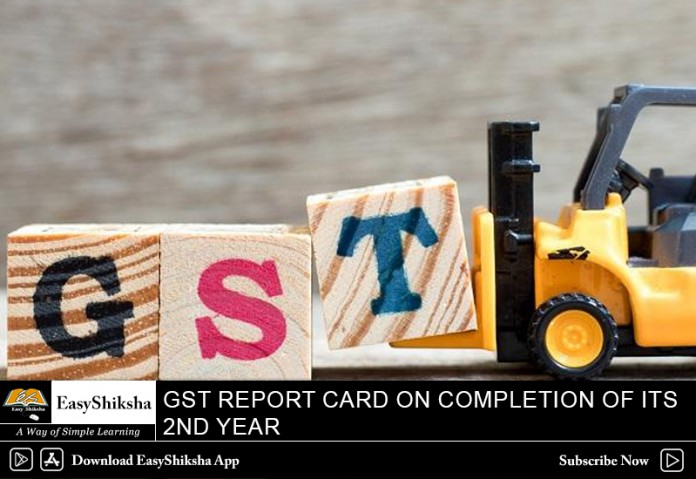Gurugram: On July 5th, the Goods and Service Tax (GST) will complete second-year of its implementation in the country. The early day’s jitter of this tax reform has given away to general acceptance in the country and has escalated confidence in various sectors. Like every sector, the realty segment has experienced certain heights with these tax reforms. The sector still seeks a number of issues that needs to address. Here’s how the past two years panned out.
The indirect tax system in India has replaced multiple taxes levied by the central and state governments. Initially, people associated with real estate were perplexed regarding the indirect tax, but slowly it has brought the much-required transparency and accountability in the working of the real estate fraternity.
In the earlier days of its implementation, the GST council had decided a 12% rate for properties under construction. However, the council in its 34th meeting has allowed developers, for under construction properties up to March 31, 2019, to choose between the old GST rates of 12% with ITC or opt new GST rate of 5% without ITC. While for affordable housing the GST shall be levied at an effective rate of 1% without ITC.
Talking about steps taken, Santosh Agarwal, CFO, AlphaCorp said, “The introduction of Goods and Service Tax (GST) brought a positive impact in the Indian real estate sector. It has simplified the complicated tax regime by replacing the multiple taxes levied by the central and state governments. The recent announcement to choose either the old structure with ITC or to shift to a new 5% and 1% rates without ITC helped avoid operational hassles. The sector has adopted the new system of taxation as well as passed on the benefits to the end customer in a transparent manner.”

Important Announcement – EasyShiksha has now started Online Internship Program “Ab India Sikhega Ghar Se”

Top Courses in Virtual Reality
More Courses With Certification
The GST council along with Government has brought in various changes. The sector seeks further changes like slashing GST rates on raw materials used for constructing homes. The lower GST rates on materials such as cement, glass, tiles, and marbles would bring down the overall construction cost of a unit, increasing the overall housing demand.
Top Courses in Software Engineering
Talking about the changes required, Amir Husain, President- Sales & Marketing, Orris Infrastructure Pvt.“The implementation of GST has boosted the sentiments of the property buyers in the country and has brought transparency in every sector, including the real estate sector. The sector will boom further if the stamp duty could be brought under the purview of GST. The announcement would help the property buyers to take the property decision and it would also increase sell in the real estate sector. Also, the government is leaving no stone unturned to make this tax reform more effective.”
The GST implementation has changed the dynamics of the real estate sector; it has given buyers the confidence to invest their money safely in properties, with a number of changes required to be made.
Top Courses in Networking
Empower your team. Lead the industry
Get a subscription to a library of online courses and digital learning tools for your organization with EasyShiksha
Request NowQ. Are EasyShiksha's internships truly free?
Yes, all internships offered by EasyShiksha are completely free of charge.
Q. How can I apply for an internship with EasyShiksha?
You can apply by visiting our website, browsing available internships, and following the application instructions provided.
Q. What types of internships are available through EasyShiksha?
EasyShiksha offers a wide range of internships across technology, business, marketing, healthcare, and more. Opportunities are continuously updated.
Q. Will I receive a certificate upon completing an internship?
Yes, upon successful completion, you will receive a certificate recognizing your participation and achievements.
Q. Are EasyShiksha's internship certificates recognized by universities and employers?
Yes, the certificates are recognized by universities, colleges, and employers worldwide.
Q. Is the download of certificates free or paid?
Access to internships and courses is free, but there is a small fee to download certificates, covering administrative costs.
Q. When can I start the course?
You can choose any course and start immediately without delay.
Q. What are the course and session timings?
These are fully online courses. You can learn at any time and pace. We recommend following a routine, but it depends on your schedule.
Q. What will happen when my course is over?
After completion, you will have lifetime access to the course for future reference.
Q. Can I download the notes and study material?
Yes, you can access and download course materials and have lifetime access for future reference.
Q. What software/tools would be needed for the course?
All necessary software/tools will be shared during the training as needed.
Q. I’m unable to make a payment. What should I do?
Try using a different card or account. If the problem persists, email us at info@easyshiksha.com.
Q. Do I get the certificate in hard copy?
No, only a soft copy is provided, which can be downloaded and printed if required.
Q. The payment got deducted but shows “failed”. What to do?
Technical errors may cause this. The deducted amount will be returned to your account in 7-10 working days.
Q. Payment was successful but dashboard shows ‘Buy Now’?
Sometimes payment reflection is delayed. If it takes longer than 30 minutes, email info@easyshiksha.com with the payment screenshot.
Q. What is the refund policy?
If you face technical issues, you can request a refund. No refunds are issued once the certificate has been generated.
Q. Can I enroll in a single course?
Yes, select the course of interest, fill in the details, make payment, and start learning. You will also earn a certificate.
Q. My questions are not listed above. I need further help.
Contact us at info@easyshiksha.com for further assistance.
ALSO READ: adani-group-announces-training-aid-for-indias-hidden-sports-heroes
Get Course: Zero-to-Hero-in-Python-GUI-Development





































































